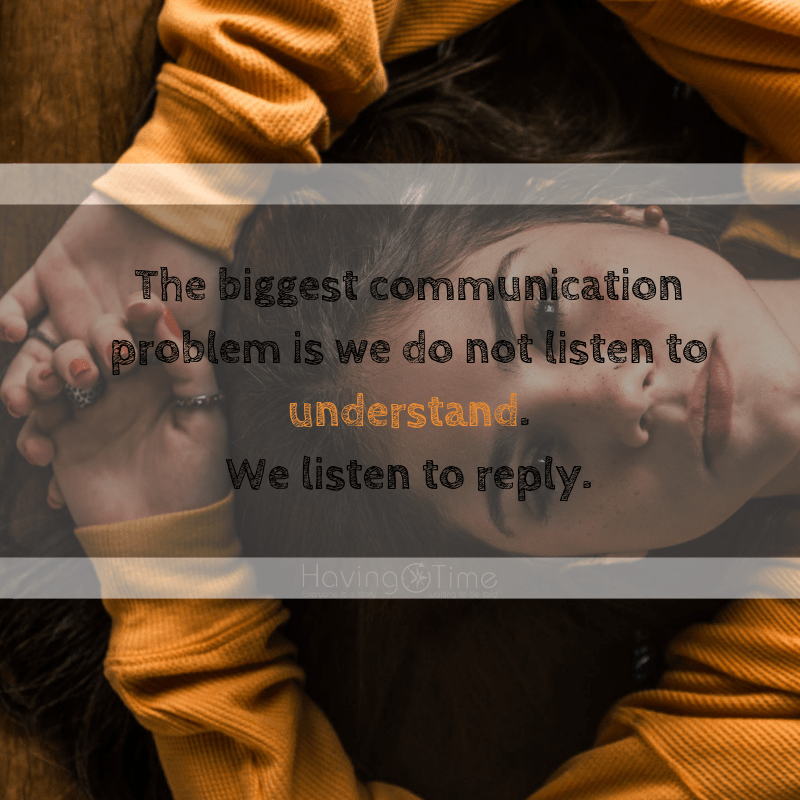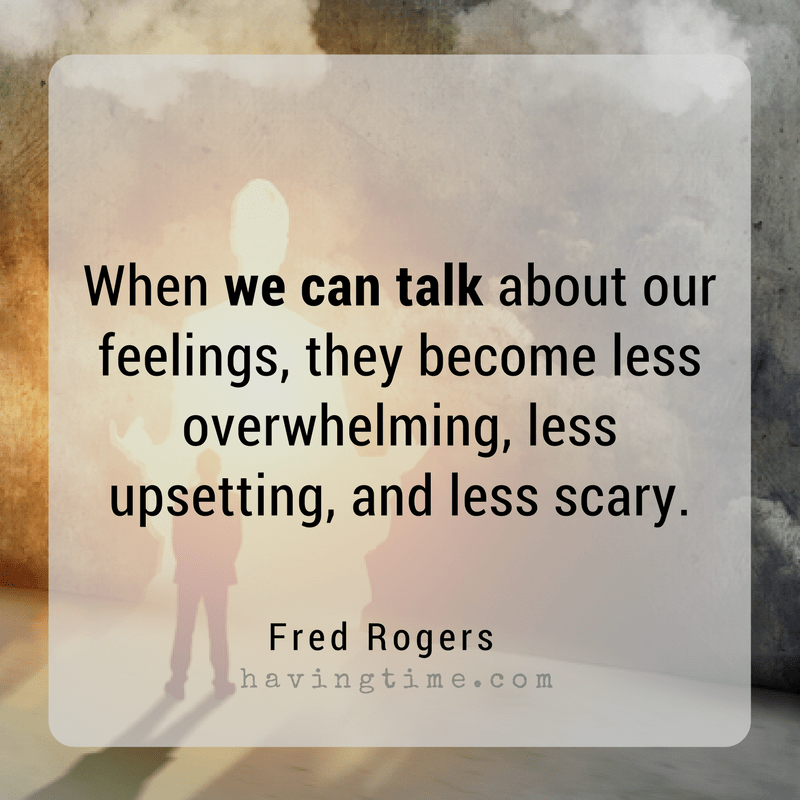What is the main challenge when it comes to developing lifelong authentic relationships? How often do we stop to recognize the importance of attending to our personal relationships and to the communities we belong to?

When I was 14 years old, my family was in a fatal car crash on the way home from a week of vacation. My dad died on impact.
My mom, three younger sisters, and I were triaged to hospitals all over northern MN, and a few hours later I found myself alone in a hospital bed.
From that moment to the time we finally did arrive back home is seared in my memory. It was the weeks after that which seemed to pass in a blur.
For one thing, I barely recognized our house when we finally got there. It was so full of flowers it seemed more like a greenhouse than our home for the better part of the next several years.
The food we ate for months was rarely the food I knew. Different friends and family members rotating to cook for us as we tried to get things “back to normal” again.
Two weeks later, that meant I went to high school.
After my first few days of classes, I remember coming home and seeing my mom sitting in the living room on the phone.
“Thank you,” she said. “That would be so helpful.”
What now? I wondered.
When she hung up the phone she said, “Kirsten, that was your friend’s mom. She is taking your friend to math tutoring every week, and she invited you to come along.”
“Why?”
“Well, because you’ll need help with homework and this way you can work on it together.”
“But Dad will…”
I stopped short. That’s right. My math homework helper was gone now.
“I don’t want a tutor. I don’t need help,” I continued.
That’s when she told me something that I have never forgotten.
She said, “Kirsten, right now, we are hurting. We feel broken. People want to help us.
So when they bring over another tray of cookies it’s your job to accept the cookies.”
“But I don’t want a math tutor. I’m fine doing my own homework.”
“I know, you’re a smart girl. But right now, Kirsten, our job is to accept the cookies.
We help them by accepting their help. Ok?”
This was something I took to heart. I went to math tutoring. I accepted more flowers, more cookies, and more help.
At some point though, I started to feel as though sometimes the help I was offered was something I actually needed to say “no” to. I thought I’m the one hurting here, why do I have to be the one to make you feel better by accepting whatever you are going to do whether or not it actually is helpful for me?
The challenge is: we don’t know how to talk about what we need very well. Especially when it comes to situations where emotions are high, there’s a lot at stake, and it would be a lot easier just to avoid things altogether. That means most of our relationships are not prepared to last.
That doesn’t do us any good.
Why?
Let me put it this way:
Because everybody loves to help. And everybody has tons of ideas for you when you’re the one in need of help (this is expected when you’re in a relationship: help given and received because you are there for each other).
Do you know the feeling of an extended family member listening to what you’re working on for two minutes and then usurping the conversation to tell you what you should do?

After experiencing this time and time again, it gets a little, well. Old.
And you start to feel bitter.
But they’re helping you. You shouldn’t feel bitter about that. And you definitely shouldn’t turn away their help.
The result? You feel bitter and angry about what people are saying and doing, and you begin to fight against yourself because you shouldn’t feel the way you feel about it, and that very quickly leads to isolation.
For them, they are helping because they don’t like to see you struggle. So, if they help a few times and you respond with anger or don’t respond at all, they will feel like there is nothing they can do, and they will also give up on being part of your community.
That means everyone feels isolated like they can’t do anything right like they shouldn’t feel the way they feel, and like they would love a magic pill that will help them feel connected and like they have a purpose again.
The problem isn’t the absence of a magic pill.
The problem is that when we can’t communicate about what is really going on for us when we can’t hold the people around us accountable to being our community in a way that respects your boundaries and theirs, then we are isolating ourselves from the people that want to show up for us. No wonder we idealize traveling (a.k.a avoiding and running away) and meeting other new people that will magically get us without all this baggage.

While I do believe in how much connection can be found across experiences all over the world, most of the time, when we are looking for a connection we want people that look like us. I don’t mean physically, though sometimes that is part of it, I mean, if we think we’re nerdy, we want to be around people that look nerdy like us.
But the truth is, the people who were already around you trying to help, were people like you. If only you could reconnect with them again, move on from the baggage, and see things as they really are: two people hurt by something that happened that would be better off sharing that hurt together.
If you take away one message from this story, this is what I want you to remember: how you communicate what is going on in your life, AND to whom, directly relates to the quality of experiences you have.
Your words are the magic pill that can take a situation that isn’t working for you (like me receiving help that didn’t work for me) and turn it into a situation where you are surrounded by people who get you and who seek you out because they want you to share with they what you’ve done and to help them with what they are going through.
That’s how it all comes full circle.
To learn what to say to Show Up & Be Seen as you are so that even now that things have changed you can become surrounded by people who get you, click here.
photo source | pexels

